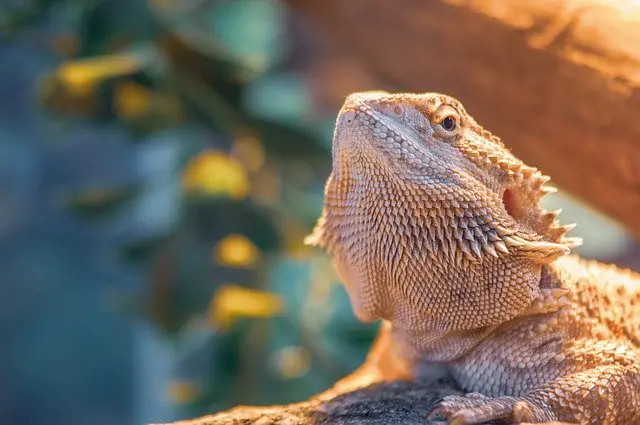Are bearded dragon pellets good for your bearded dragon? That is a question that many people ask, and the answer is not always clear. In this blog post, we will take a look at the good, the bad, and the ugly of bearded dragon pellets. We will also discuss when it is appropriate to feed your bearded dragon pellets and when it is better to give them live food.
Are bearded dragon pellets good?
There are a few things to consider when answering this question. First, let’s look at the good. Bearded dragon pellets are a good source of nutrition for your bearded dragon. They contain all of the necessary vitamins and minerals that your bearded dragon needs to stay healthy. Pellets also provide your bearded dragon with a consistent diet that they can rely on.
Now, let’s look at the bad. Bearded dragon pellets can sometimes be hard for your bearded dragon to digest. If you notice that your bearded dragon is having trouble digesting its pellets, it is best to switch to a different food source. Another downside to pellets is that they do not provide your bearded dragon with the same variety that live food does.
Pros and Cons of Bearded Dragon Pellets
There are pros and cons to bearded dragon pellets.
The main pro is that they provide a balanced diet for your bearded dragon. They contain all the nutrients your beardie needs to stay healthy.
The main con is that some people believe that feeding live food is better for their dragons. However, this isn’t always the case. Live food can carry bacteria and parasites that can make your dragon sick.
Pellets are also cheaper in the long run than buying live food. So, which is better for your beardie? That depends on your individual situation. If you have access to healthy live food, then feeding them live may be the best option. But if you’re not able to get fresh live food or don’t want to worry about it.
See our recommendation for Bearded Dragon Pellets Here.
When is it appropriate to feed your bearded dragon pellets?
As a general rule of thumb, it is best to feed your bearded dragon pellets that are no bigger than the space between their eyes. This will help ensure that they are able to properly digest their food and avoid any potential choking hazards.
There are a few different brands of bearded dragon pellets on the market, and each has its own pros and cons. Some brands are more expensive than others, but this doesn’t necessarily mean that they are of better quality. It is important to do your research and find a brand that you trust before making a purchase.
When is it better to give them live food?
While pellets are a great source of nutrition for your bearded dragon, they should not be the only thing that they eat. Bearded dragons are omnivores, so it is important to give them a variety of different foods to ensure that they are getting all of the nutrients that they need. Live food, such as crickets and mealworms, should make up a large part of their diet. These items will help them get the protein and fat that they need to stay healthy and happy.
Conclusion
The most important thing to remember is that bearded dragons are omnivores, so they need a diet that includes both plants and animals. Pellets can be a great source of nutrition for your bearded dragon, but they should not be the only thing that they eat. Be sure to offer a variety of different foods to ensure that they are getting all of the nutrients that they need.
FAQ’s
Q: Can I give my bearded dragon pellets that are bigger than the space between their eyes?
A: While it is generally best to give your bearded dragon pellets that are no bigger than the space between their eyes, they can occasionally have one that is slightly larger. Just be sure to watch them closely to make sure that they don’t have any trouble swallowing it.
Q: What brand of bearded dragon pellets should I buy?
A: There are a variety of different brands of bearded dragon pellets on the market, and each has its own pros and cons. It is important to do your research and find a brand that you trust before making a purchase.
Q: Should I only feed my bearded dragon pellets?
A: No, bearded dragons are omnivores and should have a diet that includes both plants and animals. Pellets can be a great source of nutrition for your bearded dragon, but they should not be the only thing that they eat. Be sure to offer a variety of different foods to ensure that they are getting all of the nutrients that they need.
Q: What type of fresh fruits and vegetables should I give my bearded dragon?
A: Bearded dragons love leafy greens, so try to offer them a variety of different types. You can also give them the occasional treat, such as a piece of fruit or vegetable. Just make sure that the items you give them are safe for reptiles to eat.




